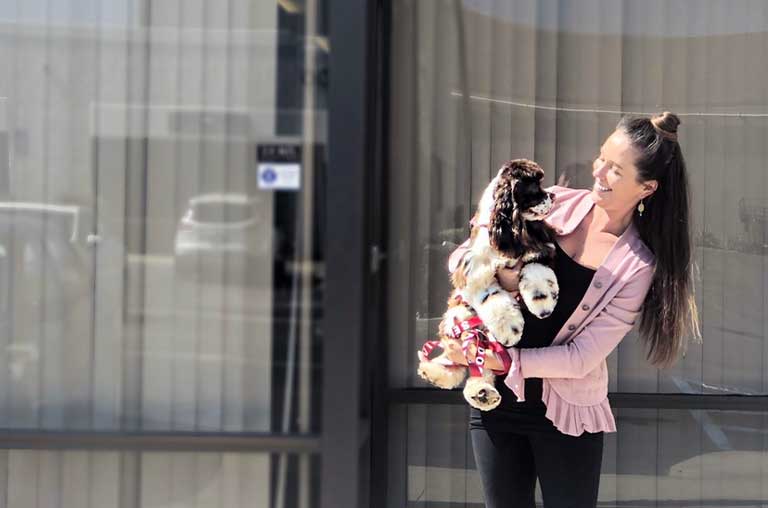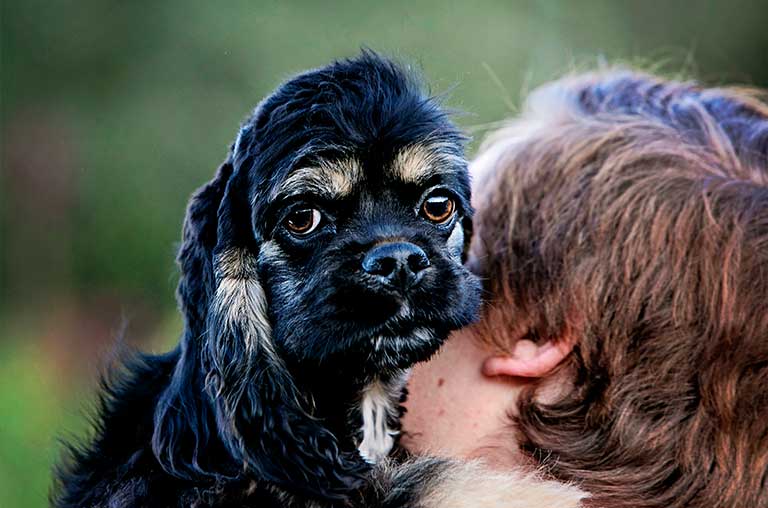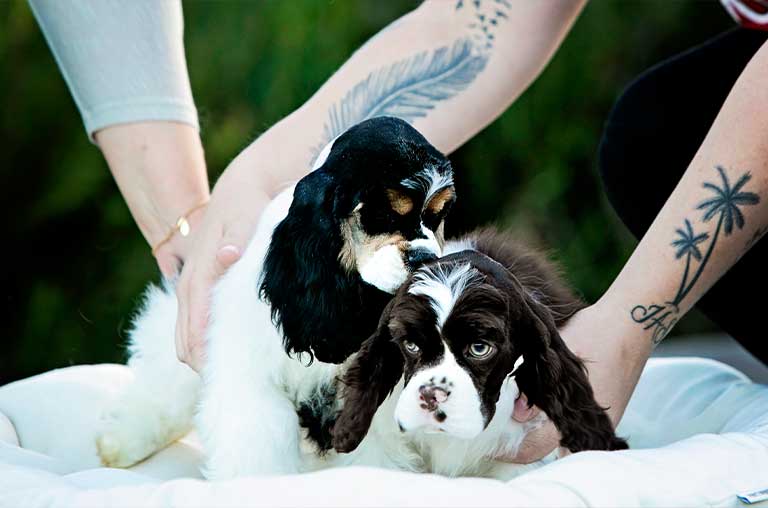Cocker Spaniel is a very friendly dog. They are friendly, intelligent, and have endless energy. However, sometimes a Cocker Spaniel doesn’t like leash as it makes them uncomfortable or due to past experience. Sometimes the Spaniel is wearing a leash for the first time makes it difficult for them as well.
Generally, a dog loves adventure. For that reason, a leash or harness makes them excited as it is a sign that they are going on an adventure.
Well, this is only true for some dogs. Your Cooker Spaniel might feel uncomfortable with a leash which is not good for the owners and the dog as well. Without proper training, a dog might get injured, so it is important for your Cocker Spaniel to get used to a leash.
In this article, we will explore what things you should do to make your Cocker Spaniel get used to a leash.
Why Your Cocker Spaniel Does Not Like Leash?
Your Cocker Spaniel may dislike leashes due to some negative memories of his/her experience.
Dogs are very emotional animals and they have a way of associating memories with people, objects, and smells. Your cocker spaniel’s past negative experience may be triggered by the appearance of a leash. You might be able to help your dog get over his phobia if only you can figure out where it came from and you can do that by examining their behavior.
Since your poor dog can’t tell you why he’s afraid of the leash, you should concentrate on the following: When the leash is pulled out-
- How does your dog react?
- Angry? Or
- Scared?
If your cocker spaniel is a rescue, the sight of a leash may trigger memories of the trauma he received from a previous owner, which could be the reason for his nervousness. Fortunately, there is training that can assist your dog in overcoming previous trauma.
On the other hand, your cocker spaniel may have learned from past experience that a leash just gives him a bath or take a trip to your cousin’s house with a vicious cat.
What to do if Cocker Spaniel doesn’t like leash having all these experiences? You have to leash train your cocker spaniel.
Things You Should Do If Cocker Spaniel Doesn’t Like Leash
Cocker Spaniel is an energetic dog. This energetic nature can end up hurting them if they are not familiar with a leash as they will try to pull the leash out. So it’s important to take the necessary step. The following things you can do if your Cocker Spaniel does like a leash attached:
Leash Training for Cocker Spaniel
The most important thing you should do is leash training if your Cocker Spaniel doesn’t like the leash attached for outings. So, you can learn to leash train your Cocker Spaniel.
How to Leash Train Your Cocker Spaniel?

A happy Cocker Spaniel with his owner
Begin leash training your Cocker Spaniel by tying him to a long piece of rope or a long leash that measures about 10-20 feet while he wears a normal harness. But it should not be retractable.
- Go to outdoor places such as your backyard. By so doing, make sure you keep beside you some cheese or pieces of fresh meat as a reward for your cocker spaniel.
- Choose which side you want your cocker spaniel to walk on: is it on the left or on the right? (Note that the left is purely traditional). Regardless of whatever your chosen side, you’ll reward him precisely next to your thigh on the side you choose for him. He’ll start to gravitate toward that side because that’s where the tasty snacks emerge!
- Walk around the yard quickly and at random. Whenever your cocker spaniel chooses to walk with you, encourage him and give him a treat beside your favorite side’s thigh. You can also play some fun games to keep him more engaged.
- If he keeps walking beside you, give him a treat for each step he takes with you. The reward may not be as frequent as he improves. Take your cocker spaniel inside if he is utterly not interested in you, and try again when you think he/she is a little hungry.
- Continue this exercise with your cocker spaniel until he/she is consistently remaining near you then he/she is not.
What to Do If Cocker Spaniel Is Leash First-Timer
It’s possible that the problem isn’t that your dog despises leashes; it’s that he’s never seen one! Maybe you acquire an older cocker spaniel, he/she may be a little apprehensive about being tethered. Your goal is to reassure him that he’ll be safe in your company and that he has nothing to fear.
Introduce The Leash to Him Like a Toy

A innocent cocker spaniel with his owner, the owner is introducing leash t the dog as a toy to get him used to it.
Allow your cocker spaniel to play around with his/her leash. This will show him/her that it isn’t as frightening as he thinks. Let him/her get used to it on the spur of the moment and you will see what comes up next.
Help your cocker spaniel get used to the experience, try and tie the leash to his/her harness and let him/her jog around even if it is dragging on the ground. He’ll soon start seeing the leash as another object, rather than something dangerous.
All through this process, give your cocker spaniel encouraging treats to help him/her develop a positive relationship with the leash.
Take your dog to places where he will have a good time
Show your cocker spaniel plenty of exciting things to do with a leash, such as going to the park and playing catch.
You may also allow him/her to spend an entire day on the leash while taking him to enjoyable locations. Or start taking him/her to the parks on almost every walk. This will enable your cocker spaniel to develop a positive relationship between him and his leash.
Conclusion
Cocker Spaniel doesn’t like leash is a very common issue. However, it is an important issue that can’t be neglected for long. You should start reacting to this issue early to make life easier for both you and your dog.
You need to stay calm and find out why this behavior occurs. Implement training techniques and throughout the procedure give the dog reward to get the best out. With proper care and effort, you can easily train your Cocker Spaniel to get comfortable with a leash.

Leave A Comment